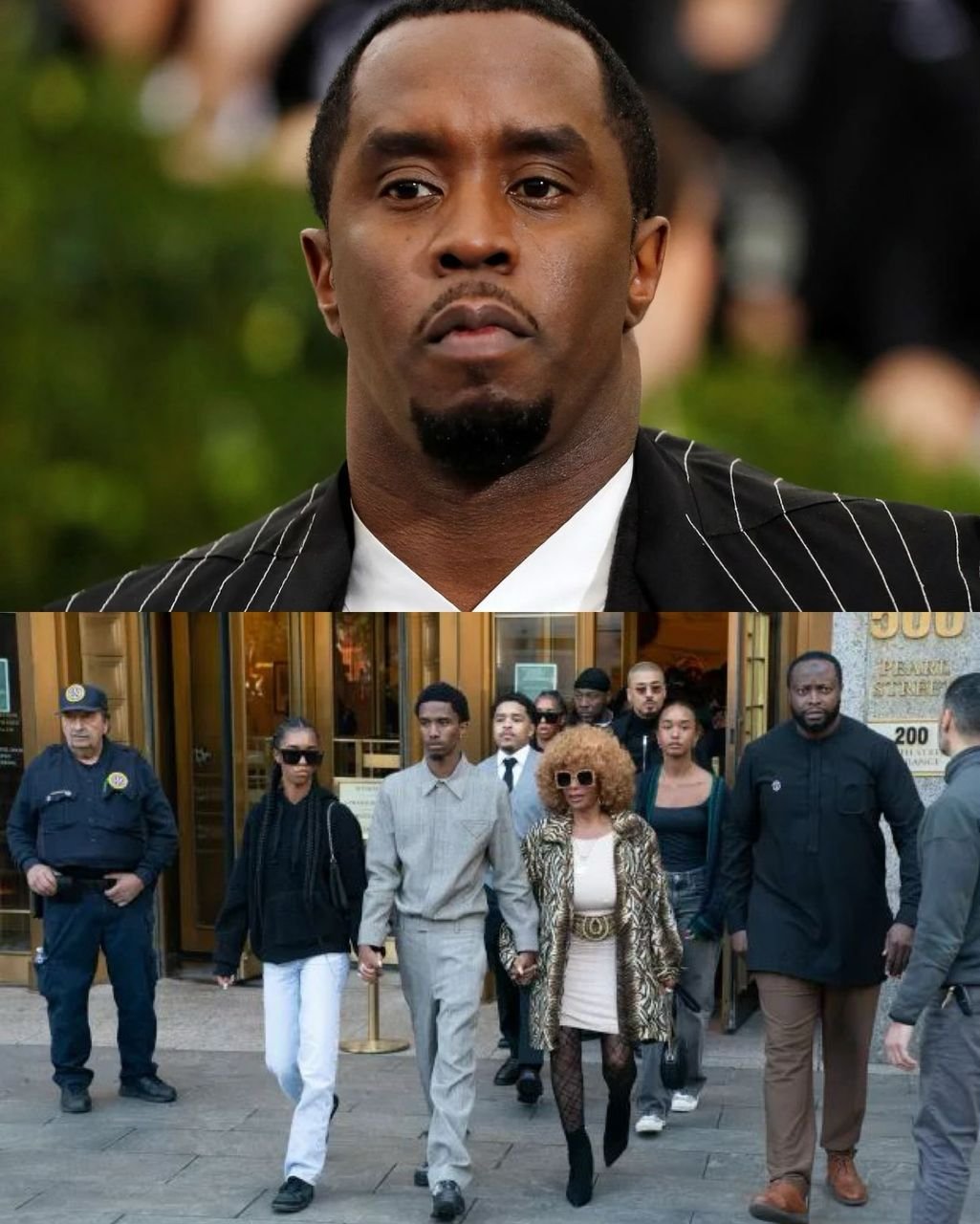The federal government’s sex-crimes case against Sean “Diddy” Combs will shortly commence, underscoring the necessity of holding one of the music industry’s most prominent figures accountable.
Combs’ defence team’s request to postpone the commencement of his federal trial was denied by U.S. District Judge Arun Subramanian on Friday. After a more emotionally subdued hearing than the previous one in March, Combs was observed beaming and waving to a few individuals as he exited the courtroom on April 18, which lasted approximately two hours. His mother was also present.
The decision indicates that Combs will be tried on May 5 in a high-profile case that involves the intertwining of celebrity and power in the context of federal sex-crimes and trafficking charges. The music mogul’s indictment was unveiled in conjunction with dozens of distinct civil suits that allege a pattern of abusive behaviour and exploitation that has persisted for decades. These suits include allegations of rape, sexual assault, and physical violence.
In September, the 55-year-old music mogul was apprehended and has been accused of racketeering, sex trafficking, and transportation to indulge in prostitution. He has entered a plea of not guilty to each of the five charges.
The music industry has been criticised for enabling troublesome behaviour behind the scenes, and the federal government is making strides to reduce this behaviour.
The judge has ruled against the delay of the Diddy trial.

April 18 marked another victory for federal prosecutors.
Subramanian denied the defense’s request to postpone the commencement of Combs’ trial by two months from its planned commencement date on May 5.
According to court documents obtained by USA TODAY, Combs’ attorneys submitted the initial request in a petition filed on April 16 in the U.S. District Court for the Southern District of New York. The ruling is timely, as Combs is currently facing two new charges of sex trafficking and transportation to engage in prostitution for the unnamed “Victim-2” that were filed earlier this month.
Diddy’s defence team’s attempt to postpone the trial by two months is rejected by a federal magistrate.
Subramanian informed the court that there is no reason to believe that the defence does not have enough time to prepare a defence, as the May 5 commencement date is about a month away.
When Combs entered the courtroom, he was not beaming; rather, he embraced each member of his legal team. Throughout the court proceeding, Combs conducted a series of solemn glances around the room. Occasionally, he bowed in agreement with his defence team, while at other times, he passed notes to his attorneys. -Patrick Ryan
The judge permits the alleged victims of Diddy’s sex crimes to maintain their anonymity during the trial.
The judge permitted the alleged Victims 2, 3, and 4, as they are identified in the indictment, to use a pseudonym throughout the trial, citing that it is a common practice in cases of sexual violence and trafficking.
Subramanian emphasised the significance of treating alleged victims with dignity and privacy, and he stated that there is “no clear reason” for the public disclosure of names, addresses, and places of employment. -Patrick Ryan
Diddy’s defence team and federal prosecutors have reached a truce regarding jury selection.
Prosecutors expressed apprehension regarding prospective jurors’ disclosure of their personal experiences with sexual assault or violence in written questionnaires. They contended that potential jurors may be apprehensive about the destinations of the paper surveys and the potential readers of their responses. The attorneys stated that enquiries regarding the experiences of potential jurors should only be disclosed during in-person interviews with the attorneys. The defence contended that jurors may be apprehensive about discussing their experiences in public and advocated for written disclosure.
A compromise was reached by both parties: Potential jurors will be able to select whether they would prefer to discuss their experiences verbally or in writing by checking a box on the questionnaires. -Patrick Ryan
Nevertheless, the defence contended that Hughes has never communicated with any of the alleged victims, and as a result, he is unaware of the specifics of their experiences. The defence argued that Hughes’ testimony is “useless and meaningless” and is “cloaked in all this jargon and a patina of science.” They argued that it would potentially confuse the jurors or lead them to make inferences about the victims that may not have factual validity in the case.
Subramanian stated that he would evaluate the arguments and render a decision at a later time. However, he would likely permit only aspects of Hughes’ testimony and refrain from employing the term “coercive control,” as Hughes had previously described the concept in a different manner. -Patrick Ryan
Leave a Reply